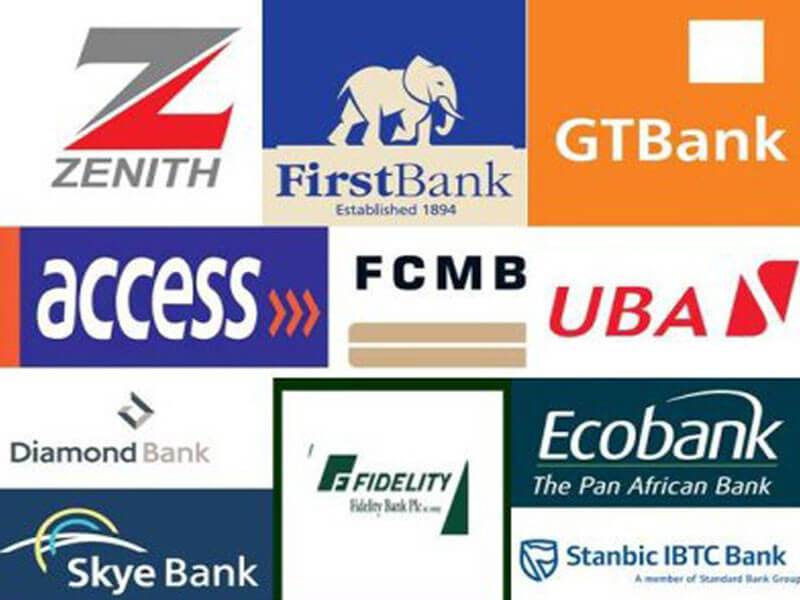
In order to meet the mandatory recapitalization standards established by the Central Bank of Nigeria, Deposit Money Banks have called upon their employees to contribute towards enhancing the financial standing of their respective banks, as revealed by sources at NewsNow.
Employees with assigned financial targets have been tasked with assisting in generating funds by promoting new account openings, reactivating dormant accounts, and encouraging larger deposits, thereby exerting pressure on them to meet these objectives.
This strategy, implemented by private limited companies operating as banks, involves internal fundraising efforts that encompass all levels of staff, including IT personnel, within commercial banks, according to insider information received by our correspondent.
It was explained that the inability of banks to effectively access capital markets for adequate funds has led to the adoption of this approach, with banks setting targets for their employees to fulfill these requirements while exploring private placements and initial public offerings.
Afrivest, an investment management company, identified 11 banks listed as private limited companies.
An employee from one of the banks mentioned that this procedure was outlined in a transparency plan submitted to the Central Bank of Nigeria to illustrate how the recapitalization targets would be met.
Under the condition of anonymity to avoid repercussions, the official further explained that Union Bank had set a target of N50bn nationwide for its staff to raise through new account acquisitions and other tactics, while Sterling Bank had been reaching out to customers to reactivate their dormant accounts.
The source noted that despite the challenging and unrealistic nature of the targets given the current economic environment, many employees have embraced this opportunity to earn extra income due to the promised incentives.
However, lower-level staff without connections to high-net-worth individuals have chosen to refrain from participating in the scheme.
Regarding the recapitalization exercise mandated by the CBN, the official stated that a mix of internal fundraising and share sales was devised by some banks to achieve their objectives.
The source elaborated, “Shares are for publicly owned institutions. Banks operating as private limited companies, unable to issue shares, are raising funds by setting financial targets for their employees.
“These targets involve encouraging staff to facilitate new account openings, dormant account reactivations, and ensuring large deposits by customers.”
The official continued, “For instance, Union Bank tasked its employees with bringing in N50bn of new funds in the form of account deposits. The N50bn objective includes non-sales or marketing employees such as IT professionals, business operations staff, and others not primarily responsible for revenue generation.
“The marketing team continues their usual tasks, while other non-traditional contributors have been engaged. This additional responsibility does not affect our key performance indicators but enhances our commitment to help banks achieve their targets. Progress has been gradual, with funds trickling in as monetary incentives are at play.”
The source mentioned that other banks are also employing similar strategies, with their staff mobilizing funds as well.
Survey findings revealed that employees are exploring alternative avenues, including social media, to reach potential customers, with competition for capital becoming more intense.
A customer of Sterling Bank, identified as Ade, shared that the bank had contacted him multiple times to reactivate his dormant account, stating, “They have been persistent in urging me to reactivate my dormant account through calls and a customer satisfaction survey. It seems their staff are under pressure to revive old accounts as part of the recapitalization drive.”
Additionally, some banks have collaborated with social media influencers, utilizing platforms like X and TikTok to promote their offerings.
An official from the apex bank, prohibited from speaking to the press, clarified that banks are permitted to employ various tactics to raise funds within the guidelines established by the bank.
“Banks have submitted their plans and can leverage those strategies to raise funds within the specified rules,” the official emphasized.
Addressing the situation, the President of the Association of Senior Staff of Banks, Insurance and Financial Institutions, Olusoji Oluwole, emphasized that the targets set for employees are aimed at ensuring sustainability and collective effort towards meeting regulatory requirements.
“In any profit-making business, targets are a common practice to sustain operations. Targets for account openings and share sales in banks are typical. It’s all about the survival of our institution. Everyone will have targets to accomplish. This scenario is not new and has occurred before. Some institutions have already announced rights issues, so marketing them should not pose a challenge. Establishments offering public offers assign targets to their staff to promote them within their networks. Even stockbrokers set targets for themselves to generate income,” he remarked.
However, he cautioned banks against setting unrealistic targets, emphasizing the importance of assessing each staff member’s capacity before assigning targets.
In late March, the Central Bank of Nigeria instructed Deposit Money Banks to recapitalize. According to the CBN recapitalization circular, commercial banks with international authorization must raise their capital base to N500bn, national banks to N200bn, and regional banks to a minimum of N50bn.
Similarly, non-interest banks with national and regional authorizations must increase their capital amounts to N20bn and N10bn, respectively.
The CBN circular specifies that only the share capital and share premium items on the Shareholder Fund portion of the balance sheet will be considered in this round of recapitalization.
Banks are required to meet the minimum capital threshold within a 24-month period starting from April 1, 2024, until March 31, 2026, utilizing options such as raising additional capital, mergers and acquisitions, and license modifications.
Bank recapitalization involves increasing the bank capital to comply with regulatory standards, enhance financial stability, and bolster lending capacity.
